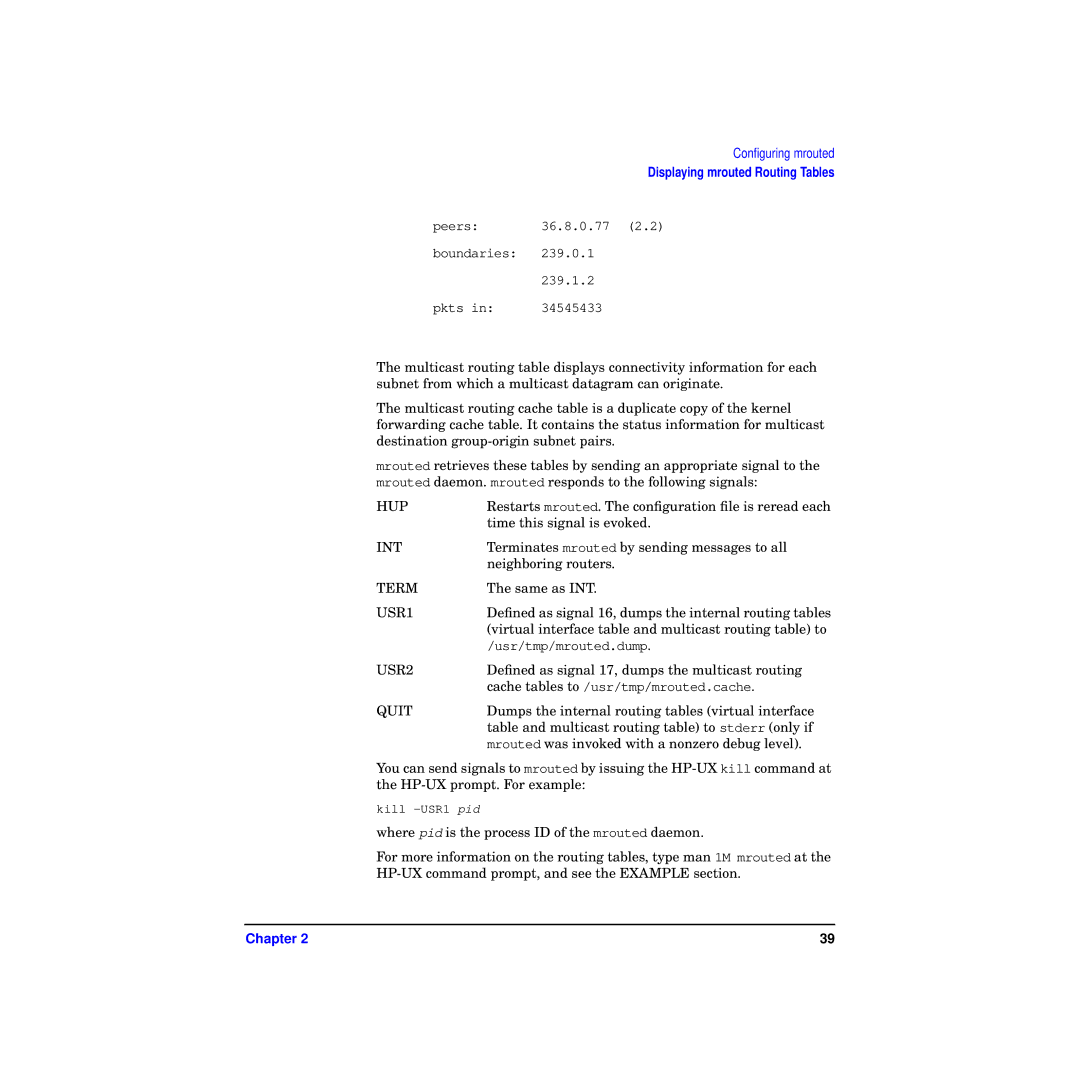Configuring mrouted
Displaying mrouted Routing Tables
peers: 36.8.0.77 (2.2)
boundaries: 239.0.1
239.1.2
pkts in: 34545433
The multicast routing table displays connectivity information for each subnet from which a multicast datagram can originate.
The multicast routing cache table is a duplicate copy of the kernel forwarding cache table. It contains the status information for multicast destination
mrouted retrieves these tables by sending an appropriate signal to the mrouted daemon. mrouted responds to the following signals:
HUP | Restarts mrouted. The configuration file is reread each |
| time this signal is evoked. |
INT | Terminates mrouted by sending messages to all |
| neighboring routers. |
TERM | The same as INT. |
USR1 | Defined as signal 16, dumps the internal routing tables |
| (virtual interface table and multicast routing table) to |
| /usr/tmp/mrouted.dump. |
USR2 | Defined as signal 17, dumps the multicast routing |
| cache tables to /usr/tmp/mrouted.cache. |
QUIT | Dumps the internal routing tables (virtual interface |
| table and multicast routing table) to stderr (only if |
| mrouted was invoked with a nonzero debug level). |
You can send signals to mrouted by issuing the
kill
where pid is the process ID of the mrouted daemon.
For more information on the routing tables, type man 1M mrouted at the
Chapter 2 | 39 |
